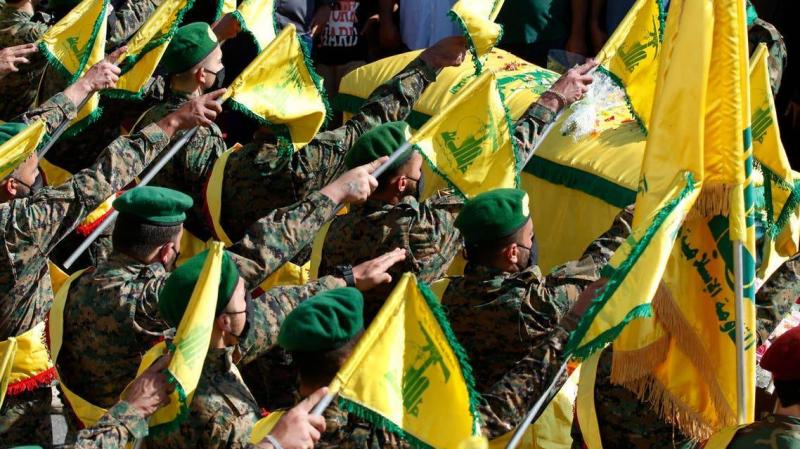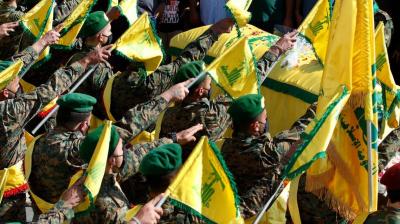Hezbollah Secretary-General Hassan Nasrallah announced on Monday that his party has one hundred thousand trained and equipped fighters in Lebanon. This was his first comment following tensions witnessed in Beirut last Thursday during a demonstration protesting the performance of the judge investigating the port explosion case.
During a speech broadcast by the party's media outlet Al-Manar, Nasrallah accused the Lebanese Forces party, his main Christian adversary, of attempting to drag the country into "civil war" and of shooting at his supporters and those of his ally, the Amal Movement, resulting in seven deaths in the Tayouneh area, one of the main fronts during the Civil War (1975-1990). Nasrallah, who considers his party the most significant military and political force in Lebanon and is leading a campaign to dismiss the investigating judge Tarek Bitar, stated that the party possesses one hundred thousand Lebanese fighters who are "trained, organized, structured, and armed," clarifying that he mentions this figure for the first time "to prevent war, not to threaten with civil war."
Immediately following his announcement, the party's supporters fired shots in celebration in the southern suburbs of Beirut, the party's stronghold. He argued that the "real program" of the Lebanese Forces is "civil war," directing strong accusations at its leader Samir Geagea, who often criticizes Hezbollah, its weapons, and its involvement in regional conflicts, particularly in neighboring Syria, where it has openly fought since 2013 in support of President Bashar al-Assad's forces.
Nasrallah's remarks came after tensions surged in Beirut on Thursday during a protest organized by his party and the Amal Movement against Judge Bitar's performance, which included gunfire and shelling, in a dangerous escalation whose context and origins remain unclear. The violence resulted in the deaths of seven individuals, including three members of Hezbollah and three from the Amal Movement, along with a woman who was shot in the head while at her home. Additionally, 32 other people were injured.
The Lebanese Forces party and its leader have denied Hezbollah's accusations, asserting that the clashes erupted following the passage of demonstrators through a predominantly Christian neighborhood, leading to damage to cars and attacks on private property. The military is investigating the incident after a video surfaced showing a soldier shooting at one of the protesters.
Nasrallah emphasized the importance of the judicial investigation reaching conclusions and identifying responsibilities, warning that "we do not leave our brothers' blood on the ground." This escalation signals a potential new political crisis for the country, coming over a month after the formation of a government that is expected to focus its efforts on devising a plan to rescue the country from economic collapse. Hezbollah and the Amal Movement refuse to hold any government session unless it addresses the issue of Bitar, whose dismissal they are seeking.
Since Bitar charged former Prime Minister Hassan Diab and other former ministers and officials, including two Amal Movement deputies and security officials, many fear that political pressures may lead to Bitar's ouster, similar to his predecessor Fadi Sawan, who was removed in February after charging political figures.
Nasrallah, who accused Bitar a week ago of "politicizing" the investigation, pointed out what he described as "selectivity" and "political targeting" against certain parties, allies, and friends, by charging officials alone, while the appeals made by the accused to remove Bitar from the case have been rejected by the appeals court. Family members of the victims continue to protest in support of Bitar and to denounce political interference and the refusal of the accused to appear before him for questioning.
Since the explosion, the authorities have rejected an international investigation, while human rights organizations, including Human Rights Watch and Amnesty International, condemn the political leaders' attempts to hinder the investigations and call for establishing an independent and impartial international investigative mission.




